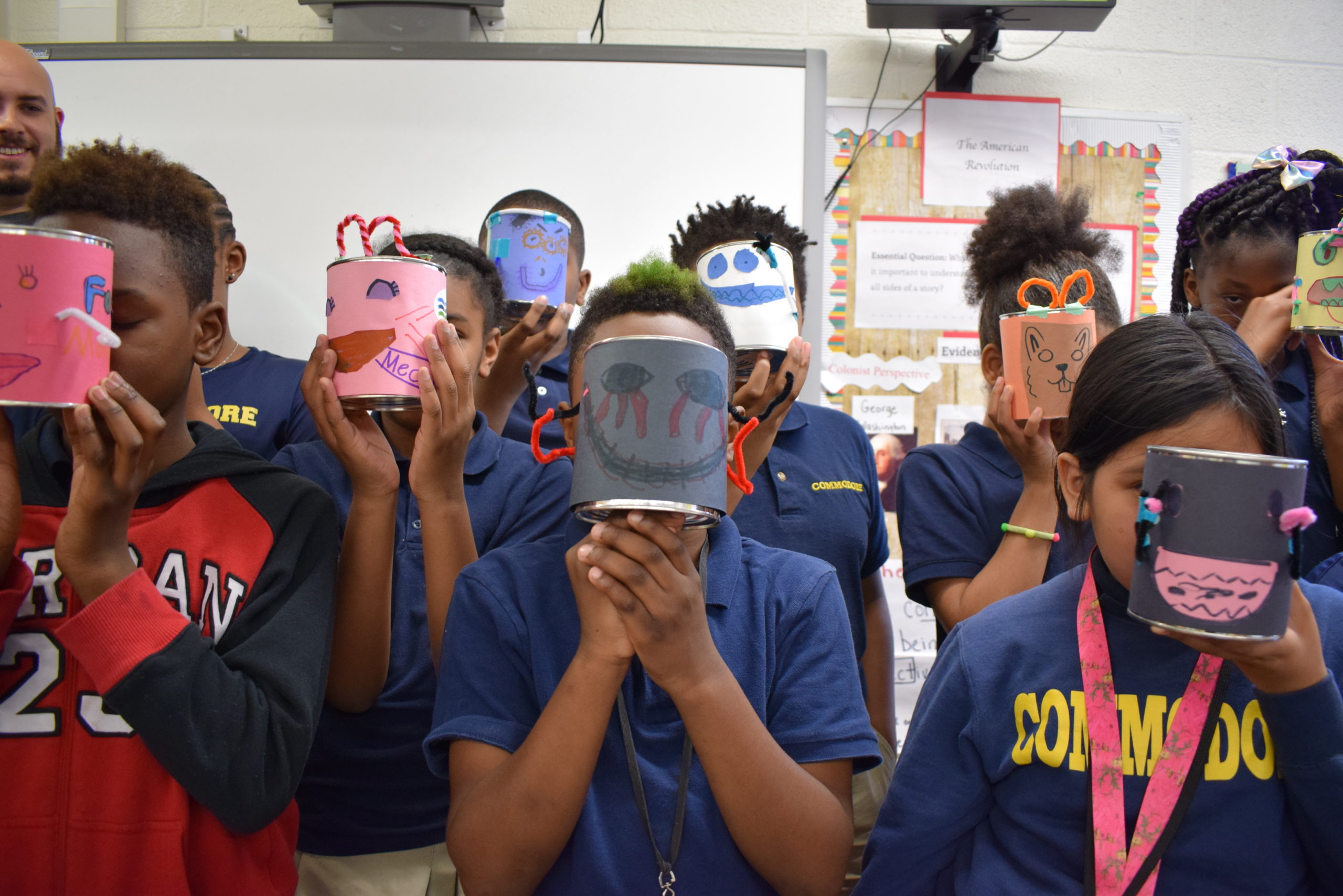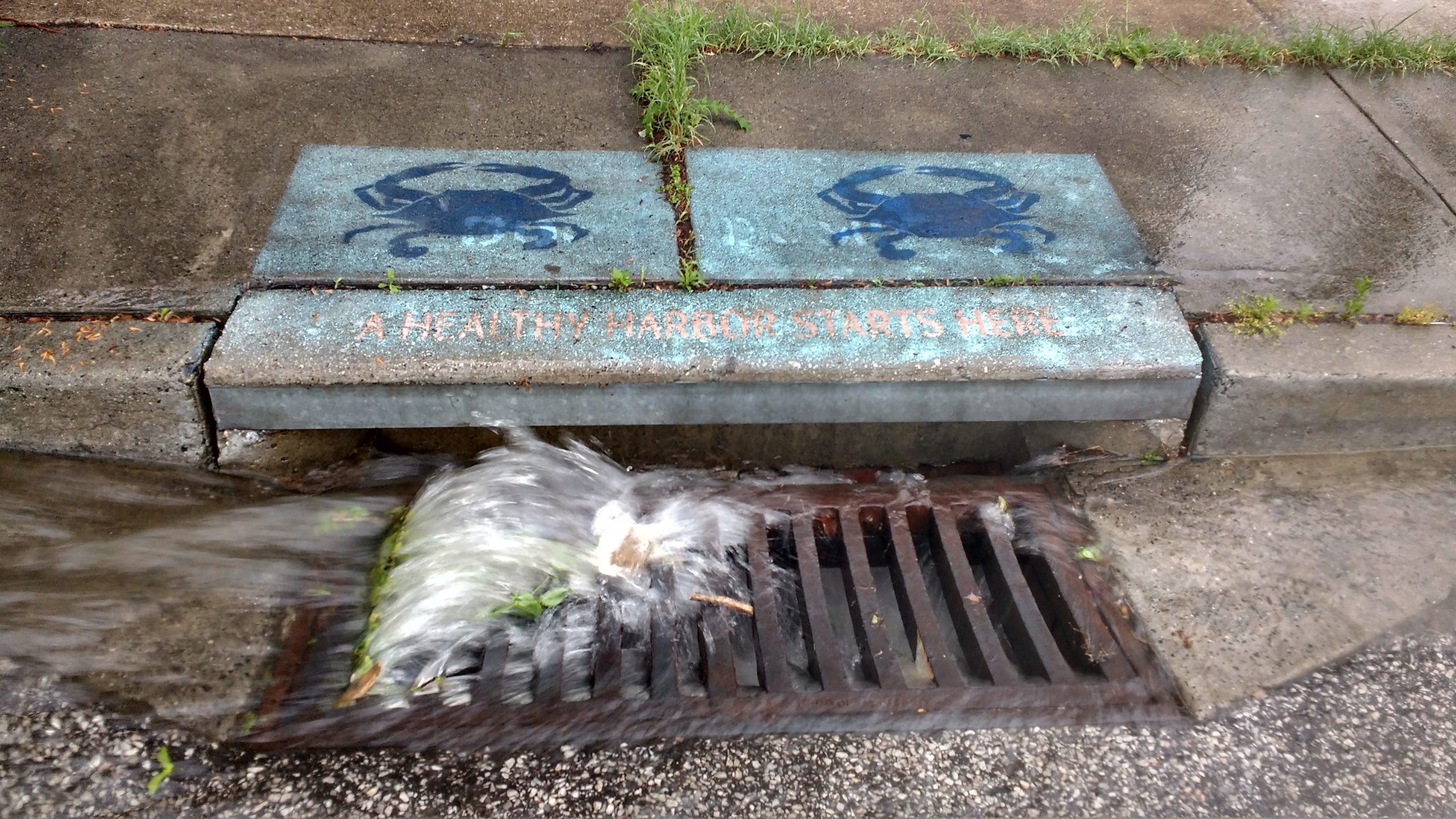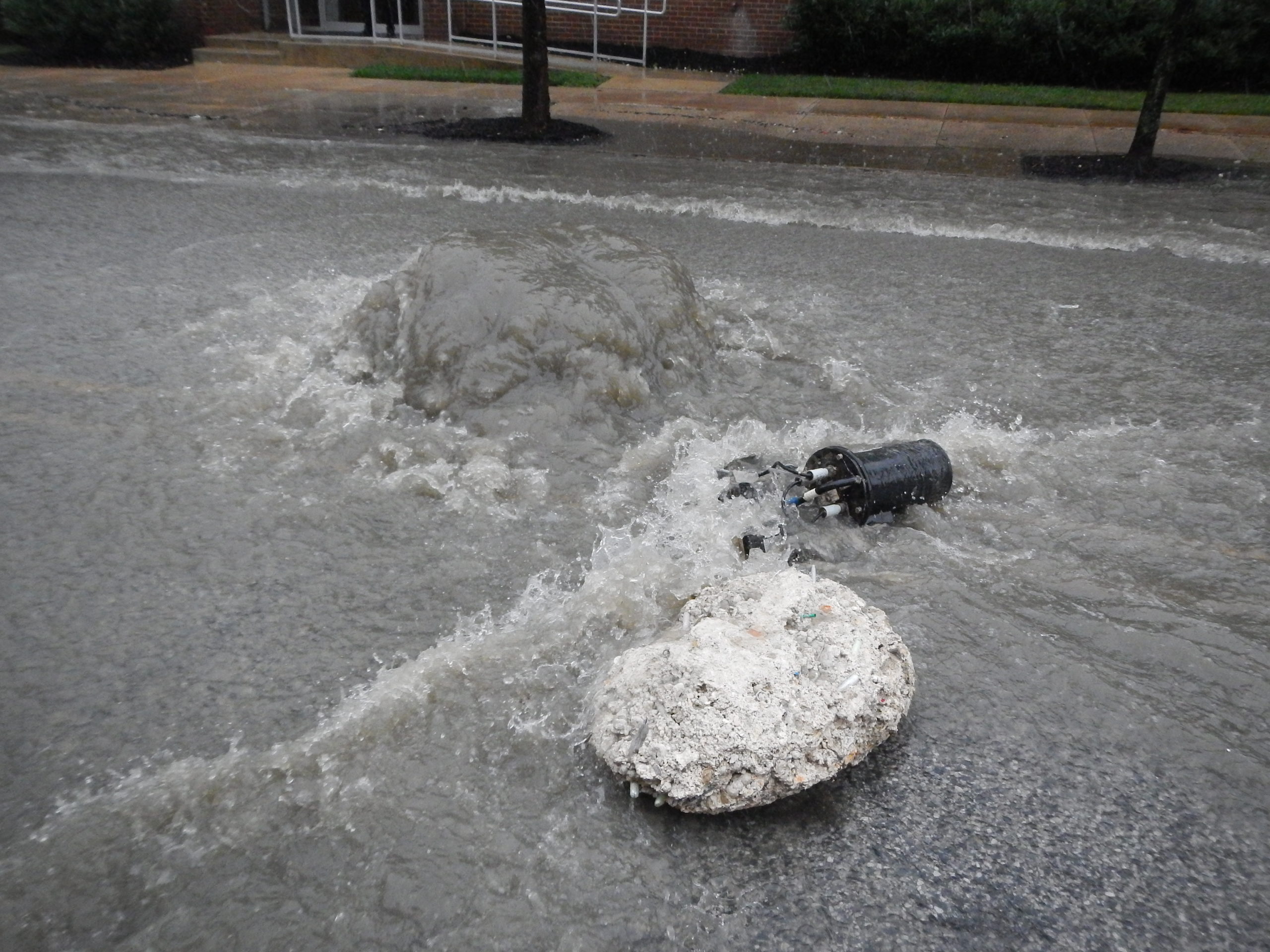Ridding Baltimore’s Waters of a Plague of Pollutants | Education & Leadership
By: Baltimore Harbor Waterkeeper

By Alice Volpitta, photos by Blue Water Baltimore
Blue Water Baltimore, home of the Baltimore Harbor Waterkeeper, is a science-based watershed organization in central Maryland that protects and restores the waterways that flow into the Patapsco and Back Rivers. The organization is tackling Baltimore’s top pollutants of sewage, trash, toxins, and polluted stormwater runoff by taking a holistic approach that includes a wide variety of eco-literacy offerings for all ages. With projections of more frequent, more intense rainstorms in our region due to global climate change, sewage overflows in Baltimore City will, over time, become even more common than they already are. We simply do not have the leisure to wait for the green and gray infrastructure projects that will resolve them — we must act against Baltimore water pollution now.

Our sanitary sewer system carries everything that is flushed, washed, and poured down our household drains — everything — and sends it to a wastewater treatment plant. But when discarded, liquid grease starts to cool down and coagulate as it moves through our pipes; it becomes “sticky” and captures all sorts of things along the way — hair, floss, un-“flushable” wipes, and everything else that shouldn’t be flushed down the toilet but often is. These small “greaseballs” coagulate into larger “fatburgs” that get lodged in the pipes and cause sewage overflows and backups into Baltimore’s streets and homes. While our region benefits from having a dedicated sanitary sewer system and a separate stormwater conveyance system, the pipes are not always as separated as they should be. Our pipes are old and cracked, and rainwater infiltrates the sewer system with every storm. This means that even a small “fatburg” will restrict pipe capacity and cause a sewage overflow during rainy weather.
“The science is clear, and it’s telling us that global climate change will result in more frequent and intense rainstorms in the Baltimore region. Our pipes are old and leaky, so excessive rainfall will put a greater burden on our sanitary sewer system. The creative approach of our eco-literacy programming not only teaches families about our urban water cycle, but it also prevents sewage backups and overflows from happening within our city. It’s a win-win for residents and the environment.” — Alice Volpitta, Baltimore Harbor Waterkeeper

Baltimore Harbor Waterkeeper is using the unfortunate prevalence of “fatburgs” in the city’s pipes as a way to educate people about the city’s underground pipe systems, how pollutants enter our waterways, and what they can do about it. Blue Water Baltimore’s eco-literacy team offers a virtual workshop, the F.O.G. Monster Mash, to help children understand the downstream effects of disposing of Fats, Oils, Grease, and all sorts of other substances, down the drain. In this program, children make “F.O.G. Monsters” by decorating used soup cans with wide mouths to “gobble up” all the slimy and sticky byproducts of cooking, which keeps them out of our sewer pipes.